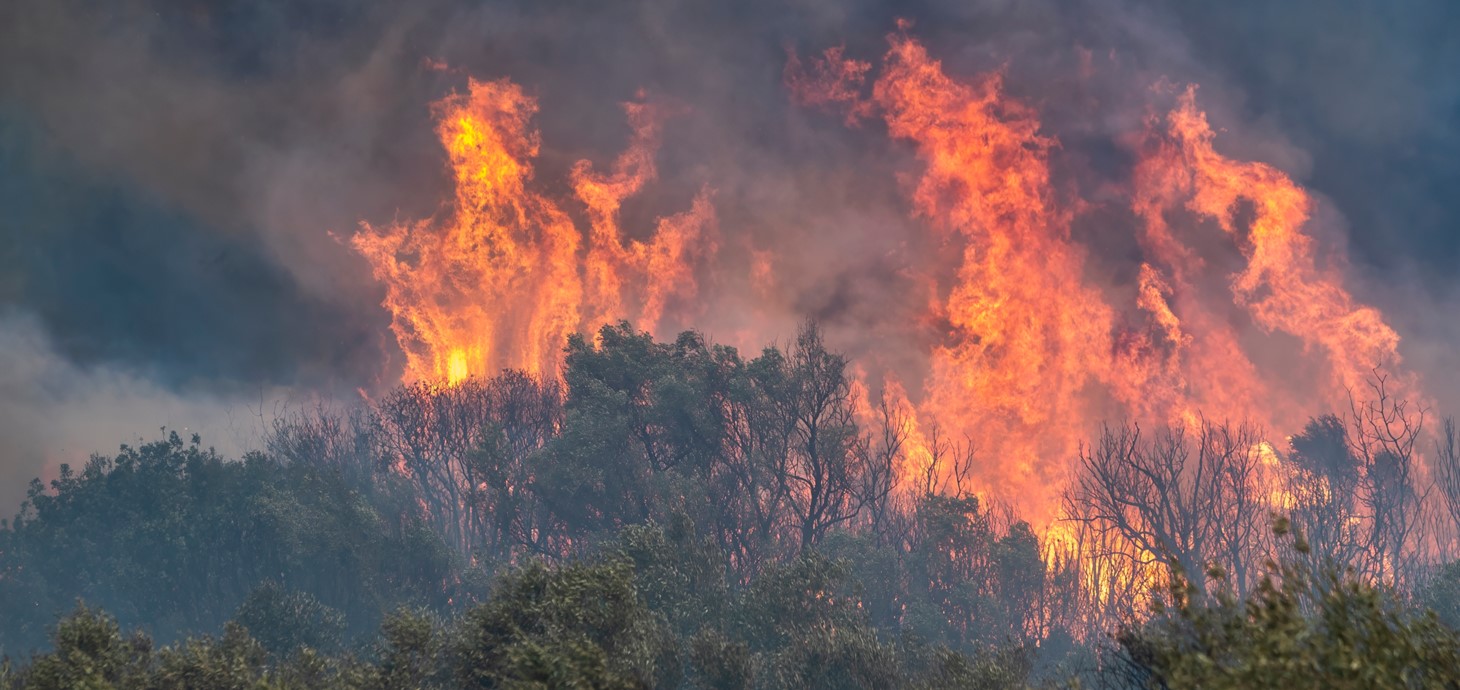
Swansea University experts have played a key role in new research highlighting wildfire activity and the role climate change has played in causing them.
The inaugural global State of Wildfires Report has just been published cataloguing extreme fires around the world during of the 2023-24 fire season, analysing their predictability and examining their causes.
The report was led by Dr Matthew Jones, now of the University of East Anglia, who was previously a research officer at Swansea University. He said: “The report provides a seasonal outlook and decadal projections. It shows that key anomalies occurred in Canada, Greece, and western Amazonia, with other high-impact events catalogued worldwide.
“Climate change significantly increased the likelihood of extreme fires, and mitigation is required to lessen future risk.”
Professor Stefan Doerr, Director of the Centre for Wildfire Research based at Swansea, co-authored the report and co-led its section on Europe.
This detailed how individual fires in Greece, Spain, Italy, Portugal, France, and Scotland led to large-scale evacuations, disruption of water supplies, damage to infrastructure as well as having an impact on tourism, destroying properties, and in some cases, causing a loss of life. In particular, the Evros fire in Greece burned around 900 km², resulted in 19 deaths and forced a hospital to be evacuated in the city of Alexandroupolis.
He said: “While wildfire activity across Europe was overall modest last year, the Evros fire became the largest ever recorded in the EU.
“The current fires which led to forced evacuations of thousands of residents near Athens and which follow the hottest June and July on record, are a stark reminder that southern Europe is experiencing a greater rate of warming due to climate change than most other regions of the world.
“This has already led to more frequent extreme fire weather – that is weather conditions that promote extreme fires - in the Mediterranean region than climate models have suggested.”
In addition, the report’s key findings included:
- 9m km² burned globally during the global fire season March 2023-February 2024;
- Global total fire carbon emissions were 16 per cent above average, totalling 8.6 billion tonnes of carbon dioxide (CO2). Only a quiet fire season in the global savannahs prevented last year from setting a new record for global fire emissions since 2003; and,
- Fires in North America, particularly in Canada, contributed around one-quarter of global CO2 emissions from fire, pushing up the global figure.
The study also revealed that human-driven climate change made fire-prone weather conditions of 2023-24 at least three times more likely in Canada, 20 times more likely in West Amazonia and twice as likely in Greece.
Looking to the 2024-25 season, fire weather forecasts indicate high (but not extreme) fire danger in parts of North America and South America and Eastern Europe, consistent with recent fires in Canada, California and Brazilian Pantanal.
Dr Jones added: “Overall, our findings emphasise the importance of continued and enhanced mitigation efforts.”
Read more about wildfire research at Swansea University
